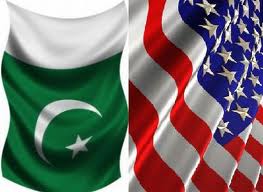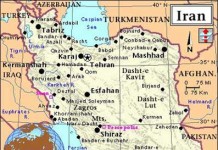 After the February 8th controversial parliamentary elections in Pakistan, the new government has been officially sworn in. The information that has emerged since then points to gross irregularities before and after the polling, raising serious doubts about the credibility and fairness of the electoral process. This has put the future of Pakistan, a critical US ally, at a crossroad.
After the February 8th controversial parliamentary elections in Pakistan, the new government has been officially sworn in. The information that has emerged since then points to gross irregularities before and after the polling, raising serious doubts about the credibility and fairness of the electoral process. This has put the future of Pakistan, a critical US ally, at a crossroad.
While the US administration has backed the assertions of election observers regarding its credibility – it has also indicated its willingness to work with the next government. The approach US takes in the face of these election irregularities will also impact the American global standing and long-term interests. The US role in Pakistan is likely to surface in the upcoming US elections, as the debates voice concern about how US upholds its values in the conduct of its foreign policy.
When it comes to the legislative side, a Congressional Letter was sent to President Biden and Secretary of State Blinken to address the alleged election rigging in Pakistan. A Congressional Subcommittee hearing is also scheduled for March 20th on “Examining the Future of Democracy in Pakistan and US-Pakistan Relationship.”
The traditional U.S. policy towards Pakistan, a nuclear armed nation with a population of about 240 million people, tends to align more closely with the security establishment. This has been the outcome of heavy reliance on Pakistan when it comes to issues of national defense, especially extremism, and before that navigating the Cold War and the Soviet invasion of Afghanistan in the 80s. The relationship has also come in handy to contain the occasional flareups with India.
However, by giving precedence to security affairs, or partnering with civilian governments that are widely perceived as either corrupt or lacking credibility, has usually led to short-term gains at the expense of long-term stability and democratic norms not maturing. In the era of escalating great power rivalry, this could be consequential.
Contrary to what many believe, the bedrock of the long US-Pakistan relations has been the people-to-people contact and the soft appeal of the US. It is crucial to maintain and strengthen these bonds by supporting democracy and human rights in Pakistan. In recognition of the peace dividend, a popularly elected government may actually improve relations with India – and become a trusted partner against extremism by adopting a holistic approach. By prioritizing US support with the aspirations of the Pakistani people, rather than narrow security interests, US can foster a more stable and democratic Pakistan, which ultimately is in the interest of both nations.
Rejecting the mandate determined through elections in Pakistan risks radicalizing the populace and especially the youth. This radicalization would be counter to U.S. interests, as it could fuel extremism and instability in the region and beyond. If the public feels disenfranchised, it is likely to provide opportunities for extremists to make inroads. With the Taliban in control in Afghanistan and tinderbox like situation in the Middle East, this would add fuel to the fire.
Additionally, a weak government in Pakistan that lacks credibility will be unable to implement necessary economic and political reforms to check kleptocracy, hindering progress and potentially exacerbating existing challenges.
It is imperative that the United States consistently supports democratic values not only in Pakistan but across the world. By doing so, will not only help in upholding American moral obligations but also strengthens US position on the world stage. Reliable support for democratic values serves as a powerful counterbalance to the authoritarian regimes and global rivals like China and Russia. It demonstrates unwavering US commitment to the principles of democracy, human rights, freedom of expression, and the rule of law, which are fundamental to American national identity and global leadership.
Arif Ansar and the Pakistan Policy Forum



